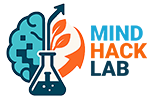Explore Making Sense
Life Skills That Actually Matter
Look, your brain is running on 100,000-year-old software trying to navigate quarterly reviews and Slack notifications. No wonder everything feels broken.
It's 3:47 AM and I'm staring at the ceiling again, brain cycling through tomorrow's presentation like it's life or death. Sound familiar? Turns out 52% of us are burned out and our brains literally can't tell the difference between our boss and a saber-toothed tiger. That's not a metaphor — that's actual neuroscience. These pages break down why your mental operating system keeps crashing (spoiler: it's not your fault) and more importantly, how to debug it. We're talking Nobel Prize research translated into 30-minute sessions that teach you to not freeze when the CEO asks you a question. Because here's what nobody mentions: it's not your skills holding you back. It's your brain's factory settings.
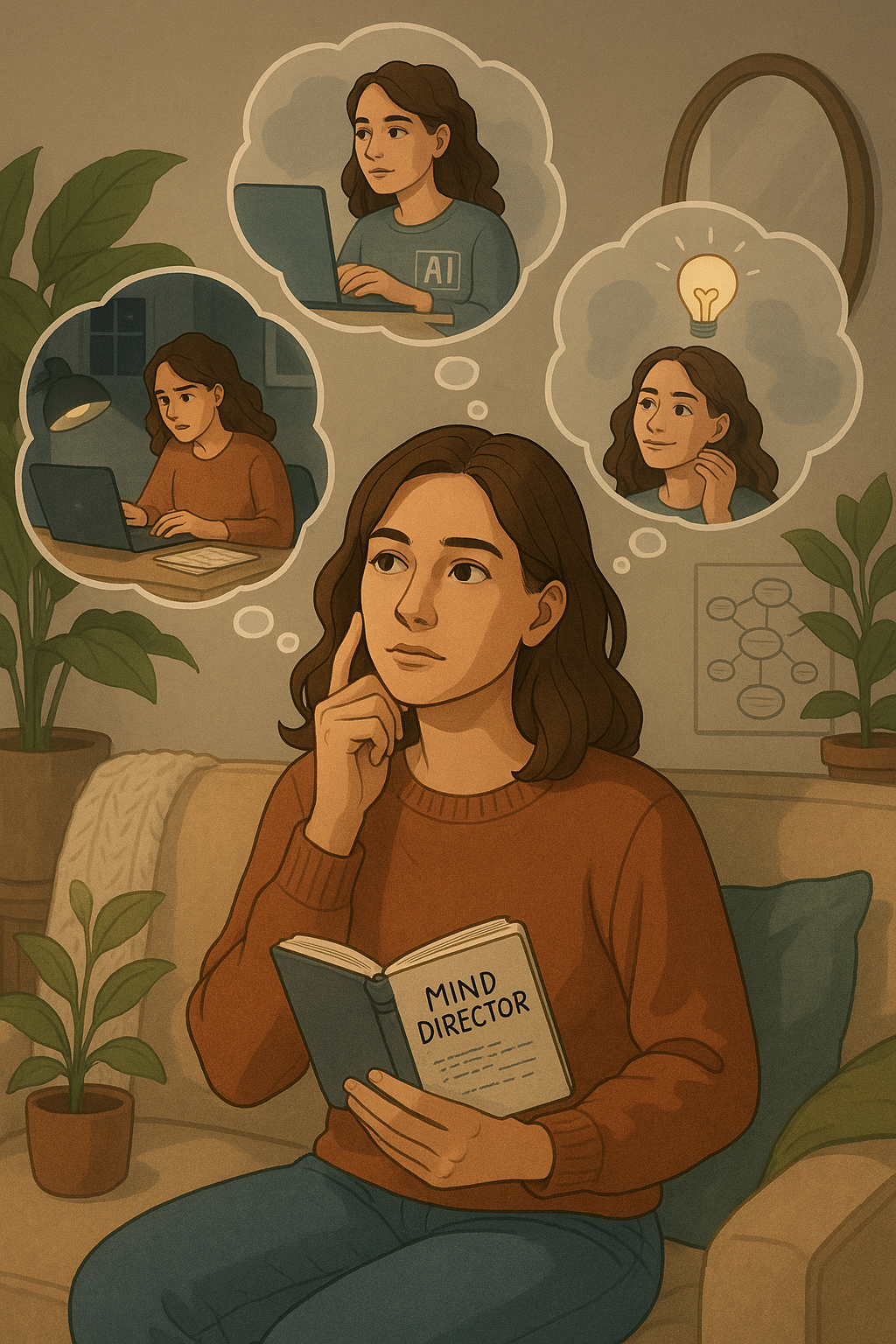
Your Stories
You know what's fucked up? You have 50,000 thoughts a day and 85% are reruns. The "Your Stories" page shows you why your brain is basically Netflix but with one show on repeat — usually titled "Ways I'm Screwing This Up." It breaks down the actual neuroscience without making you feel like you need a PhD. Like how those "What if..." thoughts that start innocently ("What if I mess up the presentation?") activate your prefrontal cortex and suddenly it's 2 AM and you're planning your escape to Costa Rica. Or how feelings (the physical stuff — tight chest, clenched jaw) last 90 seconds but emotions (the stories we tell about those feelings) can ruin your entire week. The AI coach helped me see my patterns without the judgment — turns out Tuesday meetings always trigger my "everyone thinks I'm an idiot" playlist. Small actions compound through neuroplasticity, which is just fancy talk for "your brain can actually change." This page is basically the user manual nobody gave you for the thing between your ears.
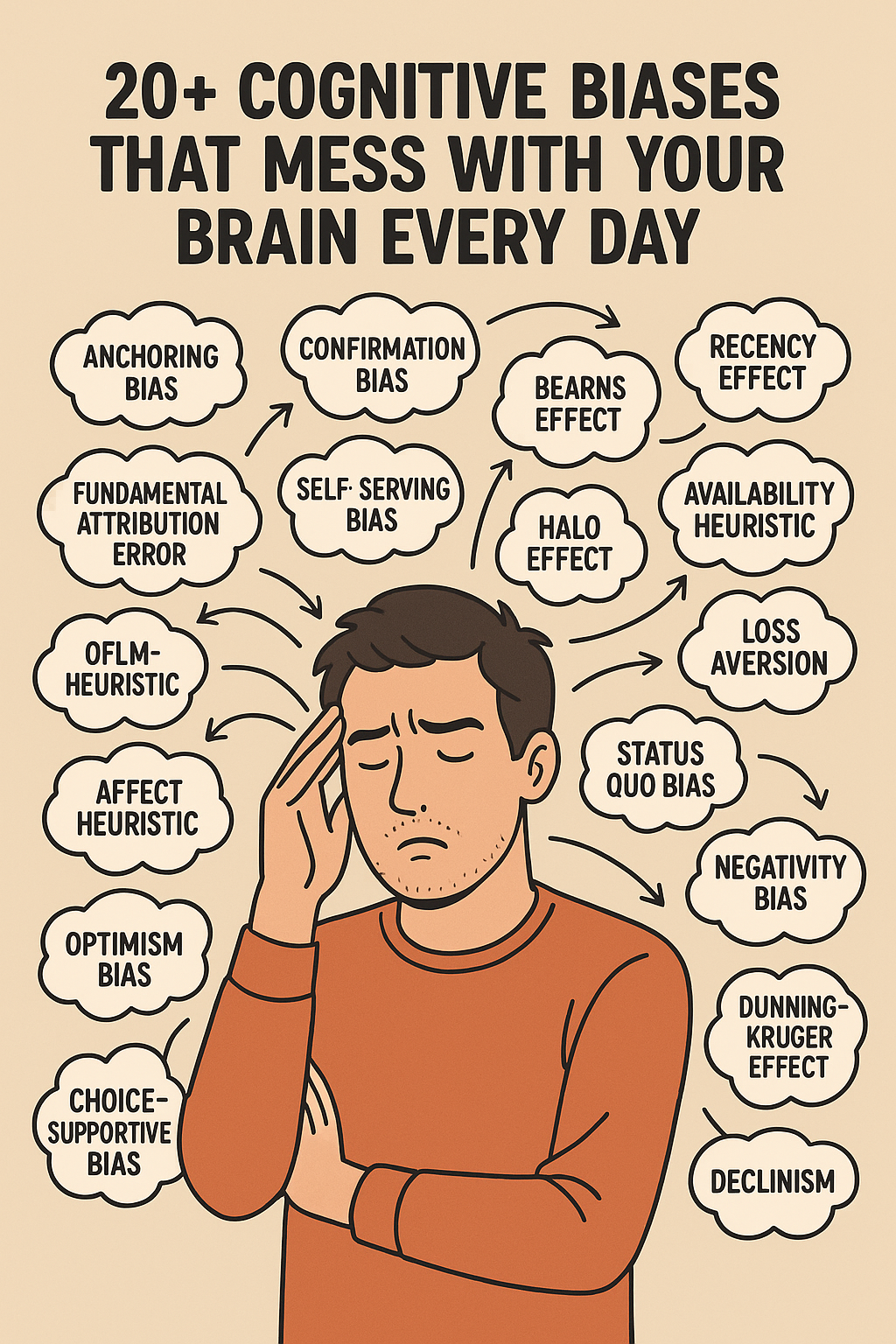
Decision Making
OKAY SO I JUST REALIZED why I keep making the same stupid decisions. The "Decision Making" page drops this bomb: two psychologists mathematically proved we're all terrible at decisions in predictable ways. They won a Nobel Prize for basically saying "humans are broken by design." The page lists 20+ cognitive biases — aka the bugs in your mental software. Loss aversion? That's why losing $100 feels like someone punched you but finding $100 is just... nice. Planning fallacy? Why every project takes twice as long and you still act surprised. What got me was connecting each bias to specific Mind Hack Lab skills that can work around them. Like, I finally understood why I panic-agreed to projects I hate (social proof bias) and how emotional regulation training could help me actually pause before saying yes. The AI coach doesn't care that I've fallen for the sunk cost fallacy 47 times — it just helps me recognize it faster each time. This isn't some academic exercise. It's literally "here's why you keep doing that dumb thing and here's how to stop."
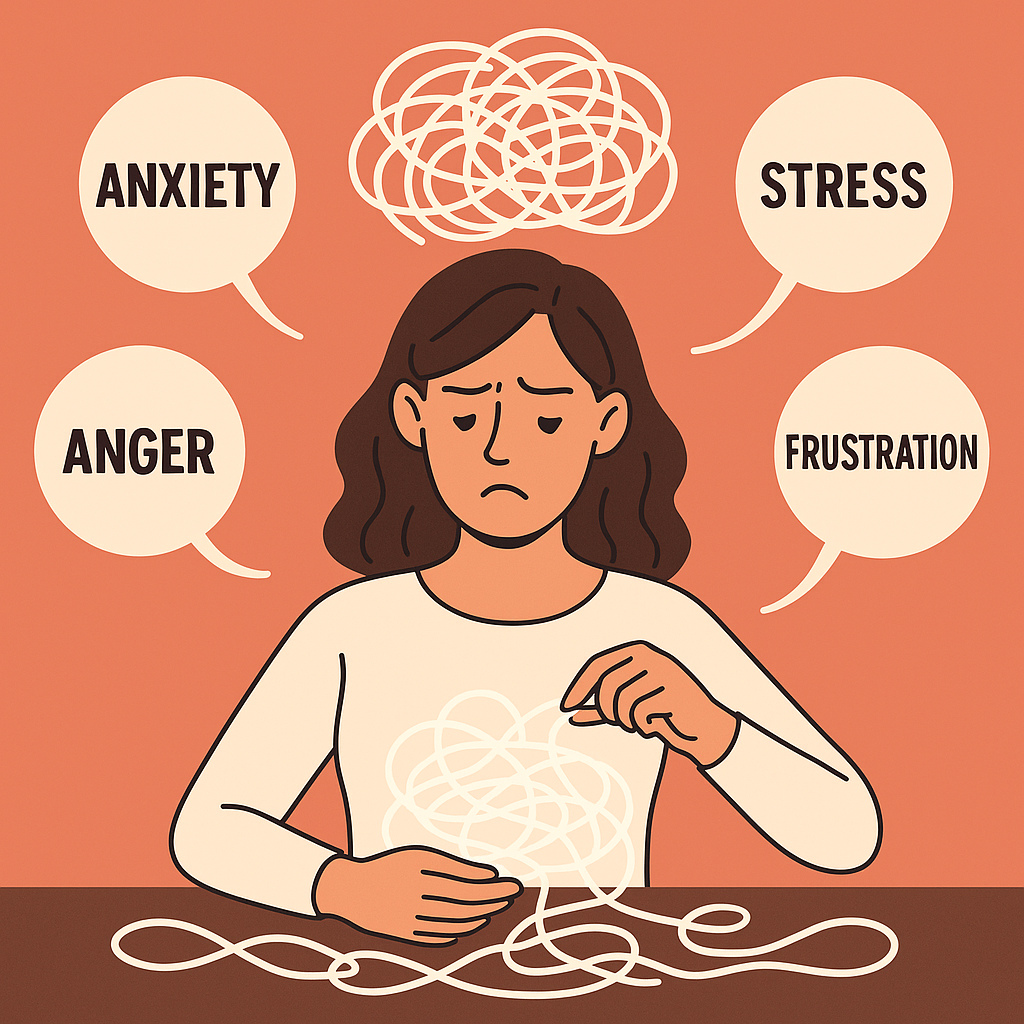
The Body-Emotion Connection
Here's what nobody talks about: emotions aren't real. Well, they're real but not how you think. The "Body-Emotion Connection" page blew my mind — based on Lisa Feldman Barrett's research showing emotions are something your brain constructs, not hardwired reactions. That racing heart before a meeting? Your brain decides if it's anxiety or excitement based on context, past trauma, and whether you ate lunch. Wild, right? Your brain uses three ingredients like some demented chef: interoception (fancy word for body signals), past experiences (all those times you bombed), and current context (is the CEO in the room?). The game-changer was learning I could literally rewire this. That stomach flutter could be "Oh god I'm dying" OR "I'm pumped for this." The AI coach taught me recategorization — basically choosing different labels for the same body feelings. Sometimes I'm not anxious, I'm just hungry. Or cold. Or need to pee. Started doing body check-ins and holy shit, half my "anxiety" was just dehydration. This page hands you the controls to your emotional construction system. You're not broken — you're just running outdated interpretation software.
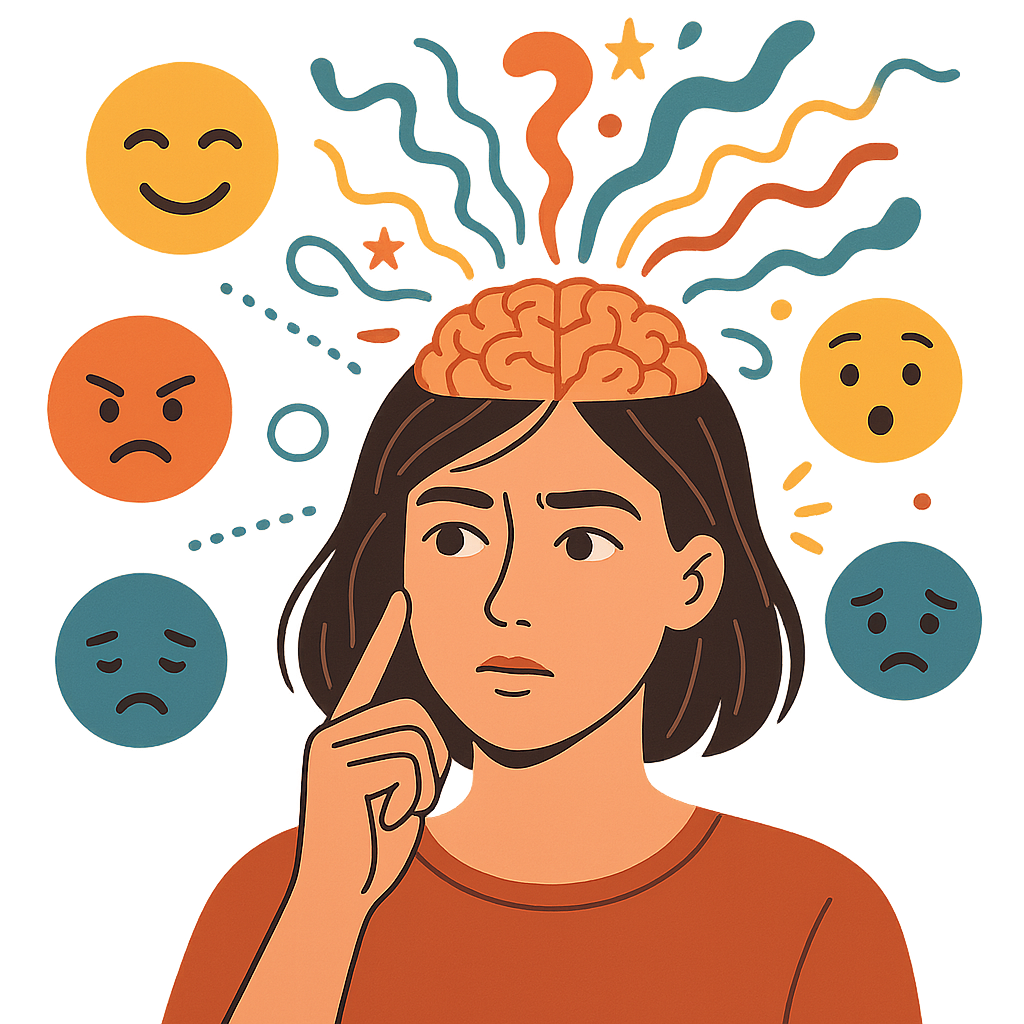
Feelings
So weird thing — saying "I'm anxious" out loud actually makes you less anxious. The "Feelings" page explains this isn't woo-woo bullshit but actual neuroscience called "affect labeling." When you name your emotion, your amygdala (panic button) literally calms down and your prefrontal cortex (thinking brain) takes over. I tried this during a spiral last week. Instead of "EVERYTHING IS TERRIBLE," I said "This is frustration about the deadline." Boom. Different brain regions lit up. The page shows five benefits but here's what matters: it physically calms your brain, stops vague overwhelming feelings from taking over, and interrupts the doom spiral before it hits escape velocity. The emotion wheel on the page? Game changer. Turns out I wasn't just "stressed" — I was specifically "professionally inadequate with a side of anticipatory dread." More words = better emotional GPS. The AI coach remembers my patterns without making it weird. Like it noticed I use "fine" when I mean "slowly dying inside." Now I actually name what's happening. "Emotional vocabulary" sounds like therapy-speak but it's literally a brain hack that moves you from hijacked to in control.
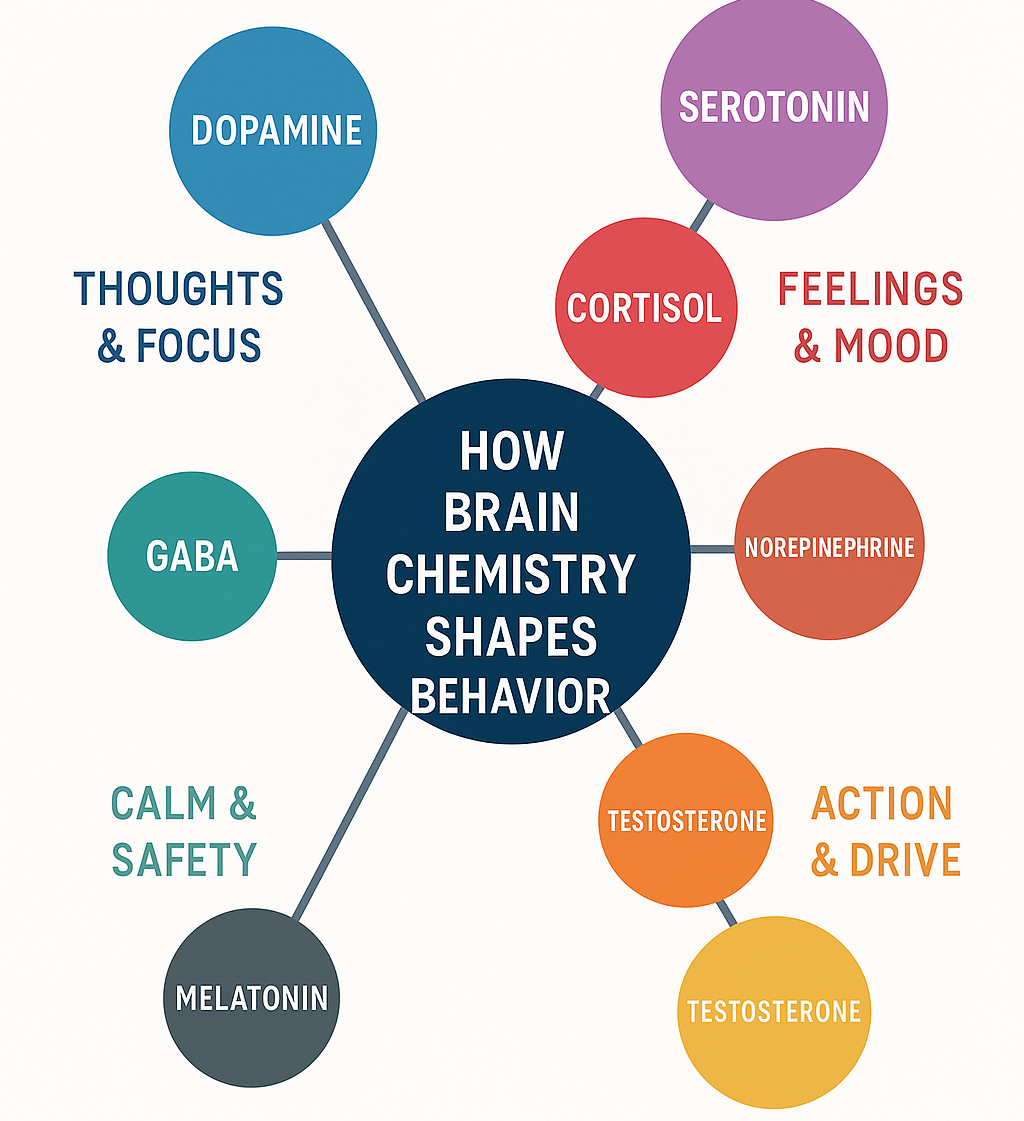
Neurotransmitters - Your Brain on Chemicals
It's 3 AM and I'm reading about brain chemicals because apparently that's my life now. The "Neurotransmitters" page explains why your brain sabotages you using language that actually makes sense. Dopamine? That's the asshole making you scroll LinkedIn instead of finishing the report. Serotonin? Why you cried when they ran out of oat milk. Cortisol is the drama queen that replays every embarrassing moment from 2019 while you're trying to sleep. GABA is supposed to be your brain's brake pedal but goes on strike during important presentations. The page connects specific chemical cocktails to exact moments we all know: forgetting your own name when the CEO asks a question (norepinephrine + cortisol tag team), the 3 PM crash (dopamine giving up), or being exhausted but wired at bedtime (cortisol vs melatonin cage match). What hit me was realizing it's not personal failure — it's just chemistry being chemistry. Your brain is running on software designed for avoiding lions, not navigating performance reviews. No wonder it glitches constantly. The AI coach helped me recognize my chemical patterns. Turns out my Sunday night doom isn't existential dread — it's just my cortisol having a party.
Mind Hack Lab Framework
The Mind Hack Lab Framework: 10 pillars for when your brain actively sabotages your career. Look, LinkedIn says emotional intelligence is the #1 skill for 2025. Deloitte calls it a "core capability." Know what that means? Your technical brilliance means jack if you freeze when leadership asks your opinion. Each pillar targets specific disasters: Confidence & Calm Under Pressure (for when your voice becomes a scared goat in meetings), Productivity & Achievement Mastery (for staring at screens while your brain plays dead), Rest & Recovery Mastery (for when 3 AM becomes your peak anxiety hour). Here's the career ROI nobody talks about: master "not panicking when asked a direct question" = executive presence = promotions. Fix procrastination loops = become the reliable one = better reviews. Stop Sunday Scaries = show up with energy = get noticed. The framework uses AI coaches exclusively. No awkward Zoom calls with Brad the life coach at 3 AM when you actually need help. The AI doesn't judge when you practice the same presentation intro 47 times. First 30 minutes gives you relief — some breathing thing that actually works (4-something-8?). First 30 days delivers early wins and shows you the patterns. Like, holy shit, it's always Tuesday meetings. Stick around month-to-month if you want to master all 10 pillars. Or don't. But those who do? They're the ones going from "person who spirals" to "person who gets promoted." The AI adapts to your specific flavor of dysfunction. Because burnout costs companies $8.8 trillion globally, but for you? It costs that promotion you didn't get while Steve from sales somehow failed upward. Again.
Biohacked
You want to know what's actually biohacking? Not cold plunges or $200 brain pills. The "Biohacked" page gets it — your brain is software, not hardware. Which means you can hack it. In 30 minutes. Without becoming one of those 4 AM meditation people. The page uses real stories that hit different: Sarah the software engineer who couldn't stop checking Slack at 2 AM, Tyler the law student paralyzed by bar exam panic, Priya the architect whose Sunday Scaries started on Thursday. Sound familiar? What matters: 73% of professionals are burnt out, 87% of students have overwhelming anxiety, and traditional solutions (therapy waitlists, meditation apps you ignore) aren't cutting it. Mind Hack Lab's approach? Targeted interventions based on which specific brain systems are glitching. Behavioral activation for stress spirals. Cognitive restructuring for procrastination loops. ACT for "what am I doing with my life" crisis mode. The AI coach figured out my patterns faster than I did — apparently I only catastrophize about meetings with more than 5 people. Who knew? This isn't about becoming Tony Robbins or replacing actual therapy. It's about installing better mental software for the specific bugs crashing your system right now. Because waiting six weeks for a therapy appointment while your career implodes isn't a strategy.
Ready to Stop the Spiral?
Thirty minutes to stop tonight's spiral. Thirty days to see the patterns. Your brain's not broken — it's just running outdated software.
